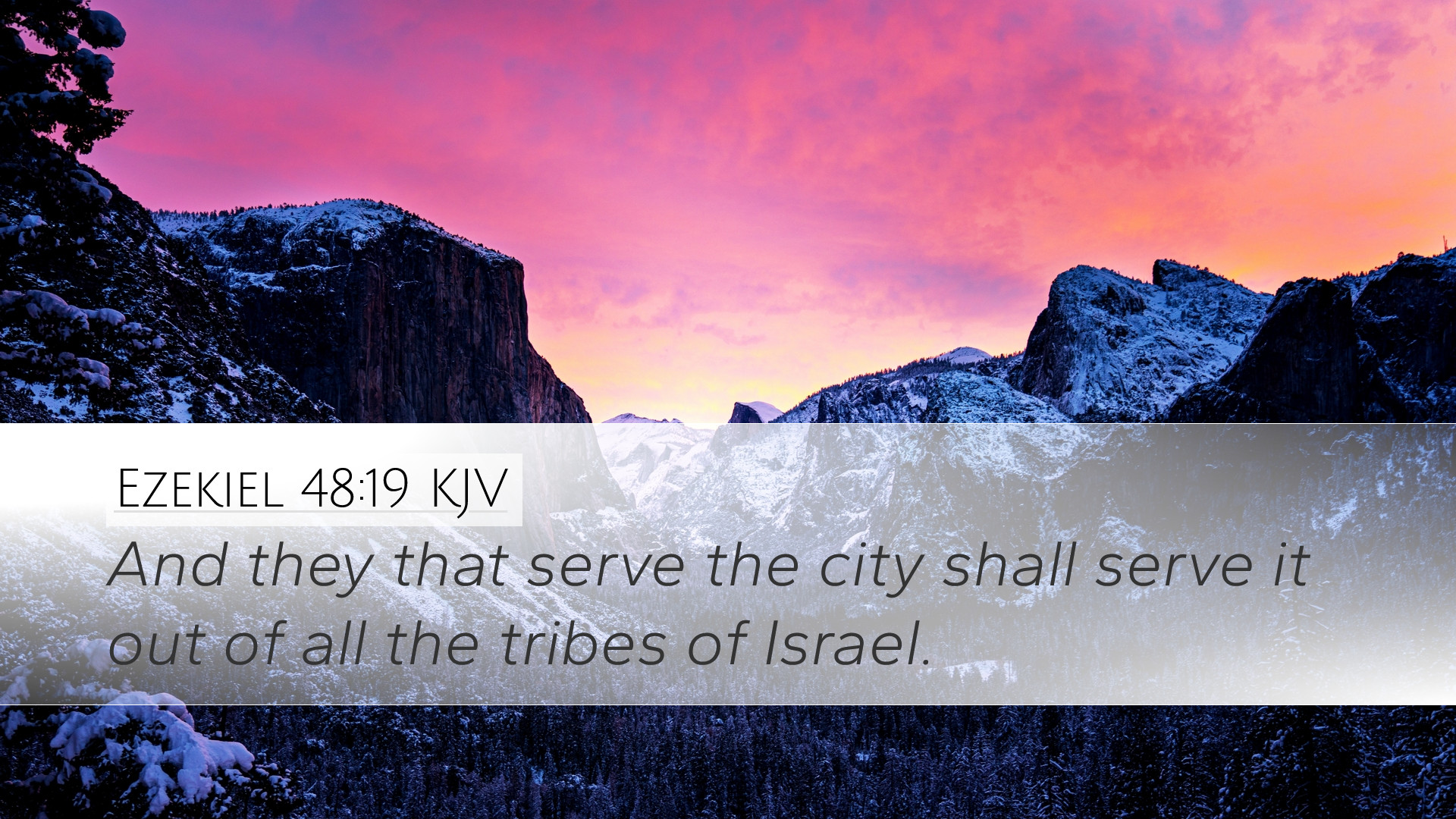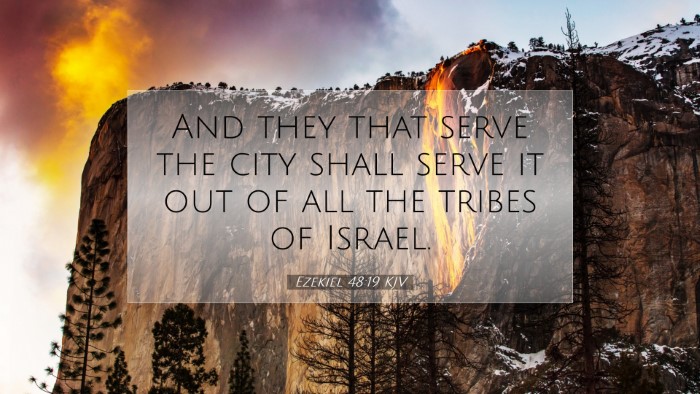Ezekiel 48:19 - Commentary Summary
Bible Verse: "The workers of the city, out of all the tribes of Israel, shall cultivate it."
Contextual Overview
The passage of Ezekiel 48:19 is situated within the larger framework of chapters 40-48, which describe the vision of the restored temple and the reallocated land among the tribes of Israel. This particular verse addresses the roles of both the Levites and the workers from various tribes in the cultivation of the land belonging to the city of Jerusalem.
Ezekiel's vision is crucial, as it demonstrates God's promise of restoration and the organization of Israel into a functioning society that honors Him. The focus on the workers indicates a community effort in rebuilding and tending to God's intended order.
Insights from Matthew Henry
Matthew Henry emphasizes the importance of community involvement in the reconstruction of Israel. He notes that the phrase "the workers of the city" does not limit the labor to a specific tribe, but rather signifies unity among the Israelites in fulfilling their covenant duties to God. Henry highlights that the cultivation of the land serves as a metaphor for spiritual labor and communal responsibility in nurturing faith and obedience.
Henry also points out that God’s provision is evident in the designated land for the Levites, which symbolizes the necessity of spiritual leaders in a thriving theocracy. This structure encourages the faithful to engage actively in their spiritual duties, fostering a culture of service and reverence for God’s commands.
Insights from Albert Barnes
Albert Barnes elaborates on the significance of the workers’ roles within the tribal cities. He believes that this organized labor reflects the divine order intended by God for His people. The workers are seen as essential in providing sustenance and support for the city, much like the Levites provide spiritual oversight.
Barnes highlights an important theological point: the blending of secular work with divine purpose. Every act of labor is a testament to God’s order; thus, all citizens of Israel have a part in God's grand narrative. He suggests that this division of labor is not merely for physical sustenance but also for the fulfillment of God's promises to His people.
Insights from Adam Clarke
Adam Clarke approaches the verse by examining the socio-economic implications of the division of land and labor among the tribes. He relates the cultivation described in Ezekiel 48:19 to the broader themes of stewardship and divine providence. Clarke argues that through diligent work, God blesses the people with abundance, thus ensuring their sustenance and well-being.
Clarke also points to the symbolism inherent in the act of cultivation itself. He posits that cultivating the land represents not only physical agriculture but also the spiritual cultivation necessary for the people to embody God's righteousness and holiness. By tending to the land, they are also tending to their spiritual lives.
Theological Implications
This verse and its commentaries touch upon broader themes relevant to contemporary ministry and theology:
- The Importance of Community: Just as the workers were united in the act of cultivation, so are modern believers called to work together in the church and society, reflecting a communal faith and duty.
- The Call to Stewardship: The role of the workers highlights a believers' duty to cultivate their faith actively, working toward spiritual and physical nourishment in accordance with God's will.
- Inclusivity in Service: The verse suggests that every believer has a role regardless of their background, drawing on the diversity of the tribes to underscore the unity in purpose within the Church.
Practical Applications
This biblical passage serves as a reminder to pastors, students, and theologians of their vital roles in the community of faith:
- Encourage congregational involvement in ministry and outreach, emphasizing that every member has a contribution to make.
- Foster environments where spiritual and physical cultivation are linked, teaching that diligent work in all spheres of life is a service unto God.
- Promote unity among believers, recognizing that diversity in gifts and backgrounds enhances the collective mission of the Church.
Conclusion
Ezekiel 48:19 reminds us of the interconnectedness of God's plan for restoration. The laborers in the city symbolize the broader call for community engagement, divine order, and the sanctity of work as worship. The insights from Matthew Henry, Albert Barnes, and Adam Clarke echo across generations, urging contemporary believers to cultivate not only the land but their hearts in service to God and one another.


